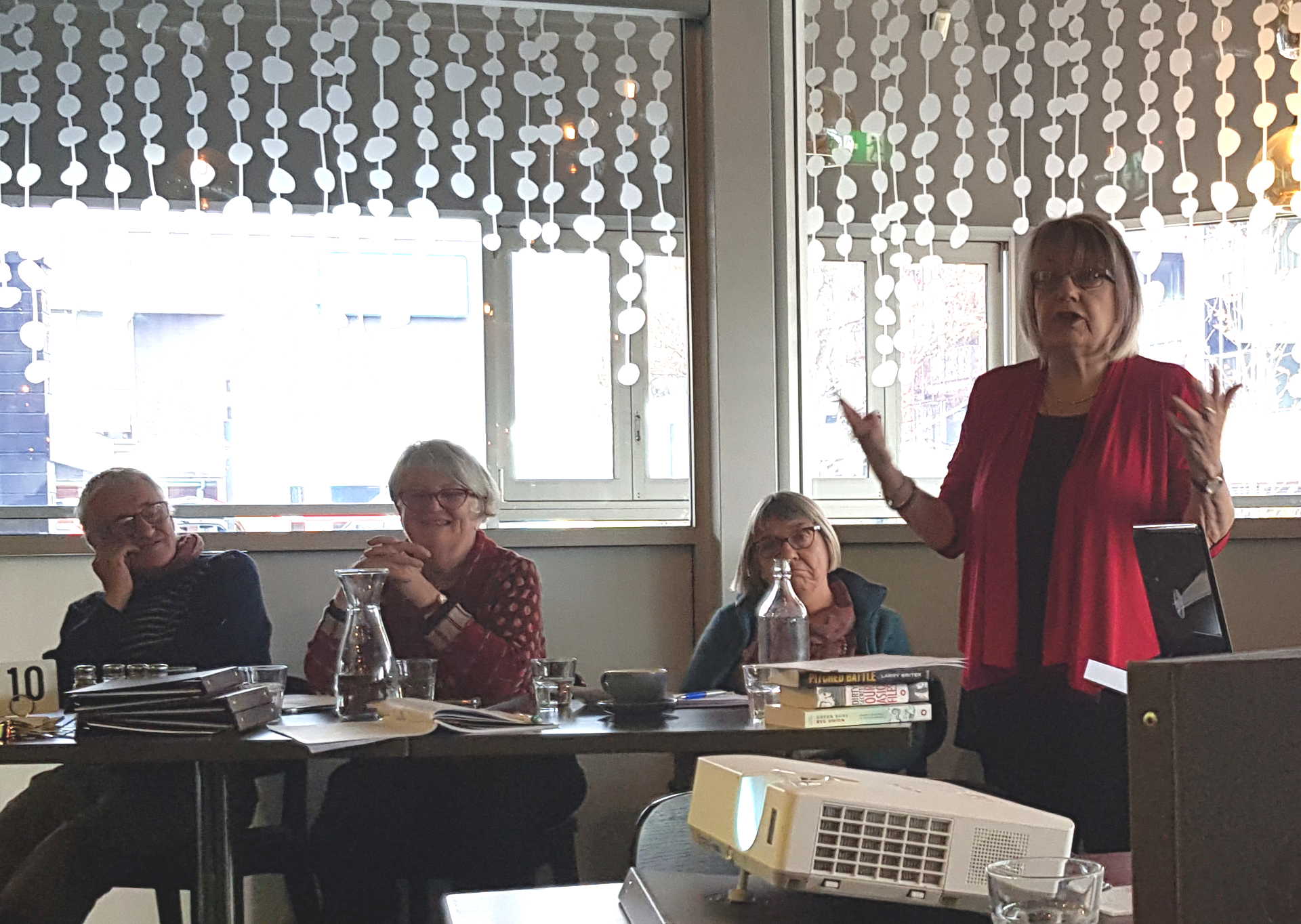Jane introduced our speaker, Dr Meredith Burgmann, an academic, unionist and feminist, who spoke about the Springbok rugby tour of Australia in 1971. The  talk focused on the tour in the context of sporting boycotts in Australia and globally.
talk focused on the tour in the context of sporting boycotts in Australia and globally.
Meredith gave an acknowledgement of country and paid her respects to elders.
We were happy to have in the audience veterans of the anti-apartheid movement as well as other contemporary actions such as the BLF’s Green Bans.
The South African Nationalist party adopted apartheid in its successful election campaign in 1948. Post-war Australia was an extremely conservative place, and the common line was that white South Africans were some kind of necessary bulwark against communism. In those days the Australian parliament didn’t discuss foreign affairs much. Meredith found only Gough Whitlam and Barry Cohen to be exceptions to this rule.
In the union movement, the seamen and waterside workers traditionally had international connections, of course. During this period they boycotted South African ships and refused to load cargos.
The first anti-apartheid group in Australia was the South Africa Defence and Aid Fund, a lawyers’ group (see John Myrtle’s essay at honesthistory.net.au). Students also demonstrated sporadically against South African apartheid. The rise of the New Left and student activism, during the Vietnam war, led to involvement in other issues including apartheid.
Sydney’s Stop the Tours campaign began in 1969: Denis Freney, Meredith, and Peter MacGregor were all involved. Sekai Holland was another member (a Zimbabwean who later returned to Zimbabwe and opposed the Mugabe government). That year the Springbok rugby team toured the UK, which gave Meredith’s group some lead time for a campaign to replicate in Australia the very successful opposition to the tour which anti-apartheid groups in the UK had organised. The longer plan was to have the 1971 South African cricket tour called off (which they achieved). Continue reading
